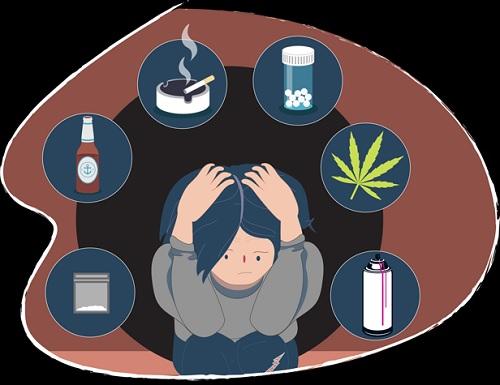Teen drug addiction is a critical issue that demands urgent attention and awareness. In recent times, this problem has escalated, impacting the lives of countless teenagers and their families. It's imperative that we delve deep into the complexities of this issue, not only to understand the root causes but also to find effective solutions. In this article, we will explore the nuances of teen drug addiction, its impact, signs, prevention, and treatment.
The Rising Concern of Teen Drug Addiction
Teen drug addiction is a grave concern with far-reaching consequences. The vulnerability and susceptibility of teenagers to substance abuse are notably high due to various factors such as peer pressure, curiosity, stress, and a desire for experimentation. Understanding the gravity of the issue is the first step towards tackling this problem effectively.
Impact on Teenagers
The effects of drug addiction on teenagers are profound and detrimental. Physically, drugs can impair brain development, hinder cognitive functions, and damage vital organs. Psychologically, it can lead to anxiety, depression, and in severe cases, suicidal tendencies. Socially, drug addiction can isolate teenagers, strain relationships, and impede their academic and personal growth.
Recognizing the Signs of Teen Drug Addiction
Early detection of drug addiction signs is crucial for timely intervention. Some common signs of teen drug addiction include:
- Behavioral Changes: Sudden shifts in behavior, withdrawal from family and friends, and avoiding social activities.
- Decline in Academic Performance: A significant drop in grades, attendance issues, and lack of interest in studies.
- Physical Changes: Drastic changes in appearance, hygiene, and weight loss or gain.
- Unusual Mood Swings: Frequent irritability, aggression, or excessive mood swings without apparent reasons.
- Secretive Behavior: Being excessively secretive, lying, or avoiding discussions about their activities.
Preventive Measures
Prevention is paramount in addressing teen drug addiction. Effective preventive measures include:
- Educational Programs: Implementing comprehensive drug education programs in schools to raise awareness about the dangers of substance abuse.
- Open Communication: Fostering an open and non-judgmental environment at home where teenagers feel comfortable discussing their concerns.
- Parental Involvement: Actively engaging in their children's lives, understanding their social circles, and being vigilant about their activities.
- Monitoring Internet and Social Media Usage: Keeping a close eye on online activities to ensure they are not exposed to drug-related content.
Treatment and Rehabilitation
When prevention falls short and a teen succumbs to drug addiction, swift and appropriate treatment becomes essential. Treatment approaches may include:
- Counseling and Therapy: Professional counseling to address the root causes of addiction and develop coping mechanisms.
- Inpatient Rehabilitation: Providing a controlled environment for detoxification and intensive therapy.
- Support Groups: Involvement in support groups to share experiences and gain strength from others in similar situations.
- Family Involvement: Including the family in the treatment process to create a strong support system for the recovering teenager.
In conclusion, teen drug addiction is a grave issue that necessitates our immediate attention. By understanding its complexities, recognizing early signs, implementing preventive measures, and ensuring appropriate treatment, we can work towards a society where our teenagers are free from the clutches of drug addiction.
